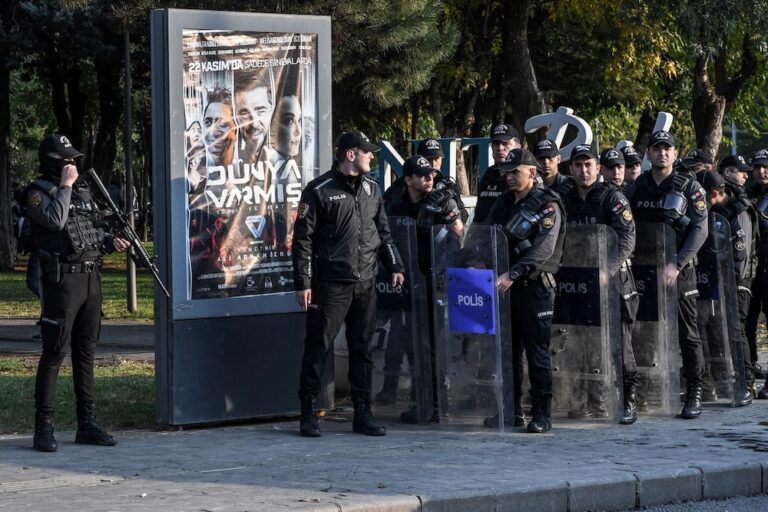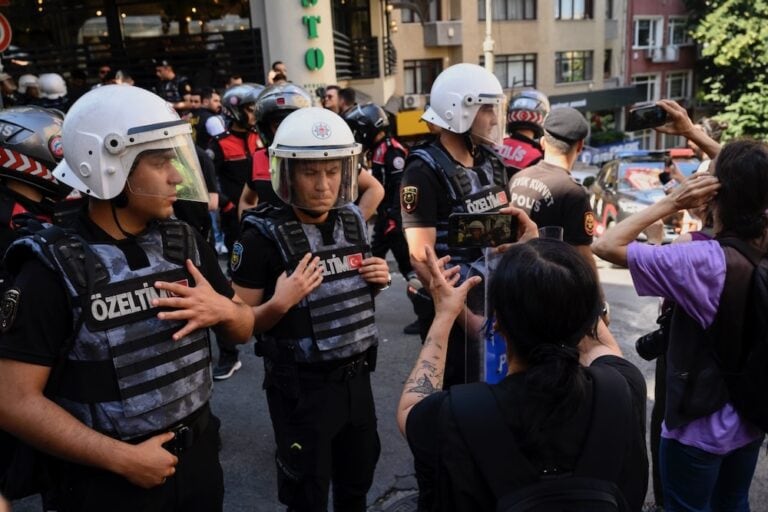Lawyer Efkan Bolac said that individuals could be prosecuted over messages that are posted to Facebook and Twitter.
(BIANET/IFEX) – 31 January 2012 – A group of activists met at the restaurant of the Haydarpasa train station on the night of 30 January. They were against the Haydarpasa Port project that is going to change the historic railway station on the Asian side of Istanbul. Railway traffic between Haydarpasa and Ankara stopped on 31 January for the duration of 24 months.
In the middle of dinner, plainclothes police officers came to the table for an identity check. Apparently, the police was informed on the grounds of a tweet on Twitter that a person with an arrest warrant was going to be at the restaurant that night.
Lawyer Efkan Bolac was also at the restaurant for the protest dinner. An official came to their table one hour after they had arrived at the Railway Restaurant and said, “The police have been waiting at the door since 7:30 pm. They got information that three people they are searching for are here and they want to do an identity check”.
Bolac replied that he was not going to show his ID if there was no search warrant. He asked the police officers who had entered the restaurant for a search warrant and was told, “It is at the Sahrayicedit Police Station, come and we will show you”.
“A group of about 25 to 30 people was there for the protest action, mainly writers, journalists, actors and advertisers. The police said that they received a notice via e-mail. It was claimed in the e-mail that ‘as written on Twitter, three people with a search warrant were going to come there’. The police conducted an identity check, said that the searched persons were not present and left the restaurant”, Bolac recalled.
“When the notice refers to a public place, the police have the right to control the accuracy of the notice according to the Identity Notification Law,” Bolac explained, and said that teams of uniformed police officers were outside the restaurant.
“It is now possible to say that social media ‘is under surveillance’. I think that the police control communications made via Twitter and Facebook. This incident was the first control of Twitter, I assume. Even trials can be opened on the grounds of the things written there.”
In a circular sent to police directorates on 16 September 2011, the Ministry of the Interior drew attention to the high number of actions organized by protestors via social networking sites or written and visual media.
According to NTV, the ministry wanted to “increase the supervision and control” at designated meeting points announced on this kind of sites.
“Some groups and people that try to destroy a peaceful and serene environment in our country are known to meet at certain places for demonstrations and protest actions. They communicate via the use of social networking sites or written visual media. Increased supervision and control according to the provisions of the Law on Powers and Duties of the Police are useful,” the circular read.
The ministry also announced on its website that it was going to open accounts on Facebook and Twitter and “use the social media effectively”.


